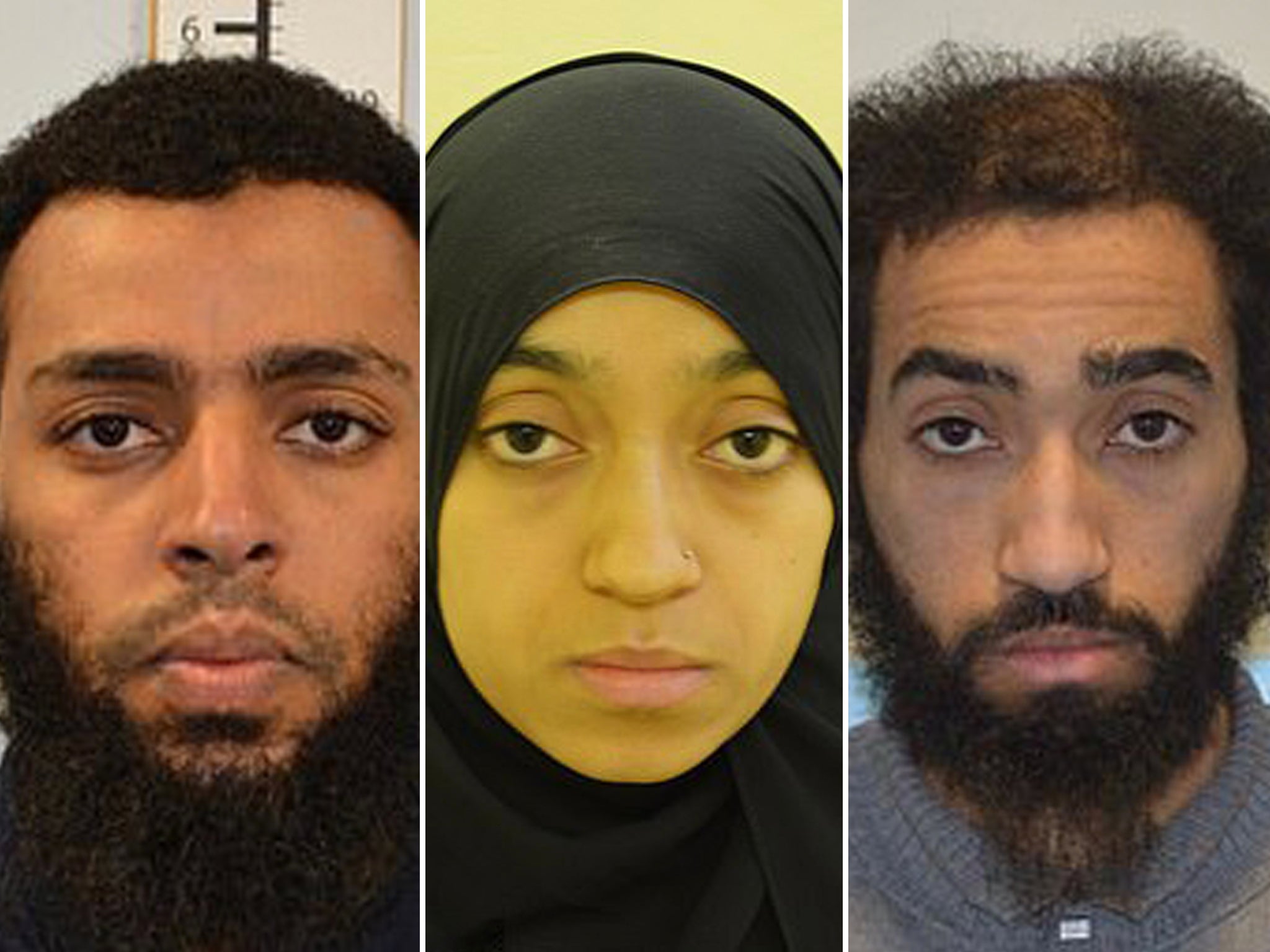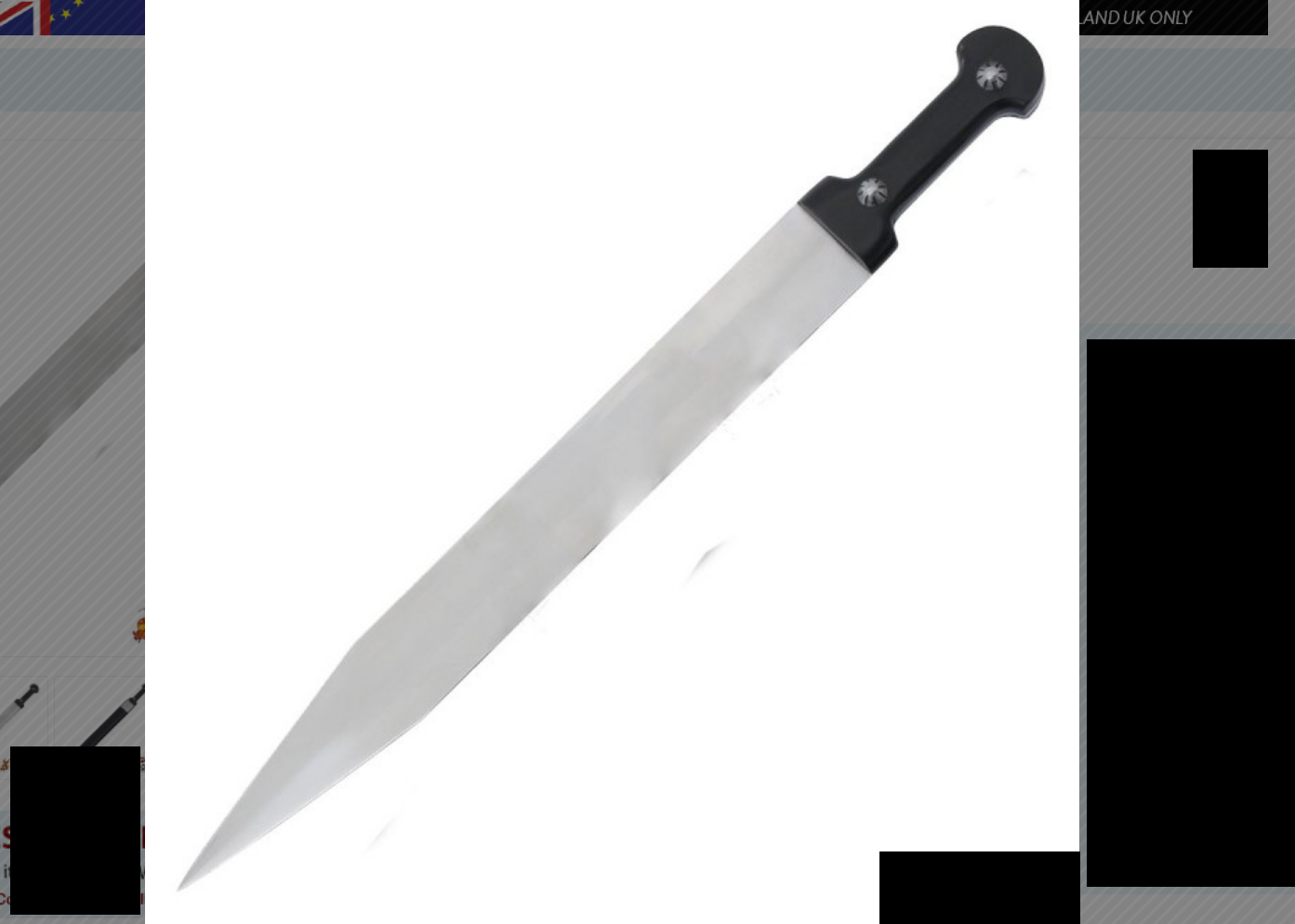The ‘extraordinary’ terrorist family of Isis-inspired attack plotter
Family includes two men who joined Isis in Syria, an attack plotter and three others jailed for terror offences, Lizzie Dearden writes

On 13 October 2017, police officers found three men putting up posters on a high street in Ilford, east London.
“Britain uses your tax money to kill Muslims in Muslim lands,” it read, displaying a picture of a poppy with a skull in the centre, alongside silhouetted military planes.
“British terror: lest we forget,” continued the anti-Remembrance Day message. “Don’t betray your ummah [community] … do not take the Jews and the Christians as allies.”
Brothers Ahmed Aweys, Sahayb Abu and Mohamed Abu were not arrested over the posters, which were taken down by police.
But the “animosity towards Britain”, as prosecutors described it, was later exhibited in other ways.
Within three years, Aweys had been jailed for disseminating Isis propaganda, and Sahayb had planned a terror attack.
Sahayb, 27, was convicted of preparing an act of terrorism on Friday but Muhamed, 32, was acquitted of failing to warn police.
The Abu brothers are part of a family containing what police called an “extraordinary” number of jihadis.
Their trial heard their father had married twice, and that they had numerous half-siblings from the other branch of the family, who also lived in London.
Two of their half-brothers, Wail and Suleyman Aweys, travelled to Syria to join Isis in 2015. Relatives later received news of their deaths, being told that Suleyman had died in battle and Wail was inside a bombed building.
Then in January 2019, three relatives were jailed for collecting and disseminating Isis propaganda.
Ahmed Aweys, Asma Aweys and Abdulaziz Omer Abu Munye – the Abu brothers’ half-brother, half-sister and her husband – had their phones seized in an unrelated criminal investigation.

It was into a conspiracy to burgle a jewellery shop in Ilford, east London, and Ahmed, Sahayb and Muhamed were all jailed for their parts in the plan.
Detectives uncovered a plethora of violent propaganda on the relatives’ phones, with Ahmed having told Facebook contacts it was acceptable to kill non-Muslims.
Sahayb and Muhamed were prosecuted for conspiracy to burgle, but Ahmed, Asma and Munye were charged with terror offences.
The trio had shared terrorist material, and Asma’s phone contained disturbing guides on carrying out terrorist attacks using vehicles, knives and fire bombs.
Their trial heard that several family members were sharing Isis propaganda and supportive posts in a family WhatsApp group.
Jailing the Aweys siblings and Munye two years ago, Judge Mark Dennis QC said: “It is apparent that other adults related to the defendants shared similar views and varying degrees of support for the extremist cause.”
The family are believed to have had links with the al-Muhajiroun (ALM) terrorist network, with Asma Aweys and Munye previously living on the same London street as the family of its founder Omar Bakri Mohammad.

The Abu brothers’ trial heard that Sahayb made numerous online searches for Anjem Choudary and other ALM figures, and discussed them with an undercover police officer who was posing as a jihadist gun smuggler.
Jurors were shown numerous messages between Sahayb, his brother Muhamed and a teenage half-brother on the Aweys side sharing extremist material and views.
“Inshallah [hopefully] Allah will make us action men and not chatty men,” Sahayb wrote in a three-way chat group on 17 June. “The caravan [of Isis fighters] left without us but inshallah our time will come.”
His teenage half-brother, who The Independent is not naming because he was 17 at the time and has not been prosecuted, repeated “our time will come” and added: “For now we have to bide our time and find the perfect moment.”
All three siblings shared terrorist material, violent posts and made statements supportive of Isis.
“We don’t belong here,” the teenager wrote in their group chat days before police swooped in July. “Solo [Suleyman Aweys] and Abu Hajar [Wail Aweys] lead the path, let’s follow.
“We shouldn’t just watch these videos and feel pain in our heart akhi [brother], we still have time.”
Jurors were shown footage of recorded raps and songs exchanged by Sahayb and Muhamed.
On 18 June, Sahayb posted a recording of himself singing a tune ending with the words “would you hold onto the black banner, would you hold on to the black banner”, which prosecutors said referred to the Isis flag. Muhamed replied with his version of the same song, with the same lyrics.
Prosecutor John McGuinness QC told the Old Bailey: “The contents of their devices and their communications with each other, and on occasions with [the teenage half-brother] reveal that both defendants had extremist views and violent mindsets and that they supported the beliefs, aims and methods of Isis.”
Sahayb mentioned his family’s terrorist credentials when applying to join an Isis-supporting group on the encrypted Telegram app.
“Me and my family have had our whole world turned upside down because my brother and sister and her husband were ‘disseminating’ videos and magazines to each other,” he said.
“The feds came and locked them all up, even my sister for a year and they’re still on probation and a bunch of other anti-terror stuff. [They were] posting vids of Dawlah [Isis] and this stuff.”
At his first meeting with an undercover police officer, who was posing as a fellow jihadist and gun smuggler, Sahayb brought up the subject of his two dead half-brothers and called them “martyrs”.
Other relatives were also mentioned at the Abu brothers’ trial. Among Sahayb’s ideological influences was a US hate preacher called Suleiman Anwar Bengharsa, who he had direct contact with online after being freed from jail.
Giving evidence in court, he said he was originally told about the cleric by a half-sister who had paid £200 to do an “online course” with him and said he was “really good”.

At the time of his arrest, Sahayb was living alone in his father’s east London flat, and had been since his release from prison in March.
Police found an Isis flag in a wardrobe he was using, but Sahayb claimed it belonged to his father.
Commander Richard Smith, of the Metropolitan Police Counter-Terrorism Command, said the number of convicted and alleged terrorist sympathisers in the family was “extraordinary”.
“Nobody is born with hatred and intolerance in them, that has to come from somewhere, some malign influence to start that process happening,” he told a press conference.
“Certainly beiing in proximity to people of the same mindset, and it would appear in this family there may have been several of a similar mindset, would certainly enforce some of those intolerant, bigoted and hate-filled beliefs. But exactly what that malign spark or influence was we do not conclusively know.”



